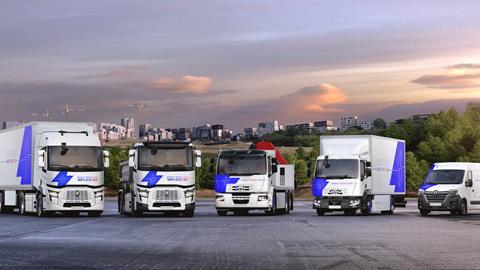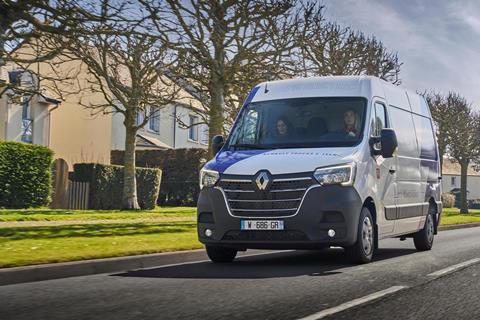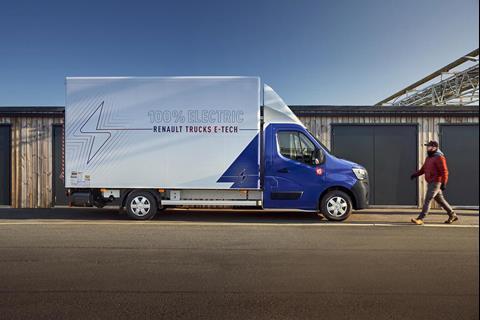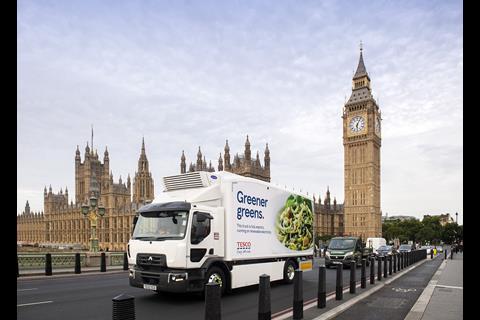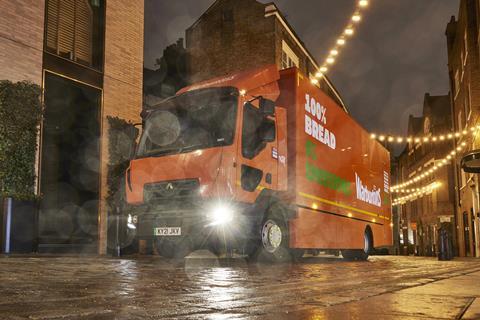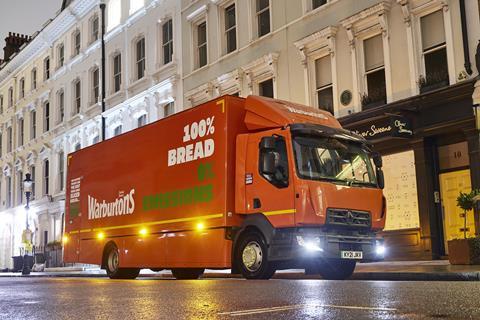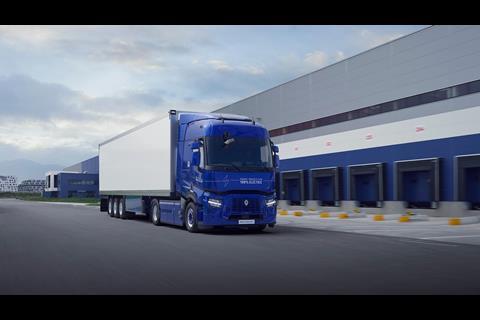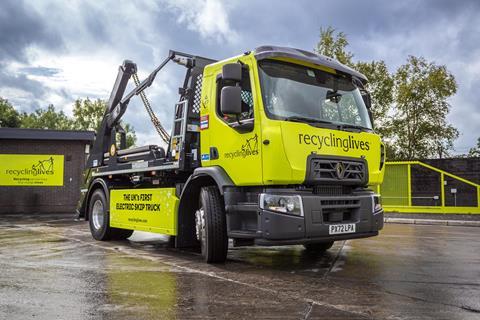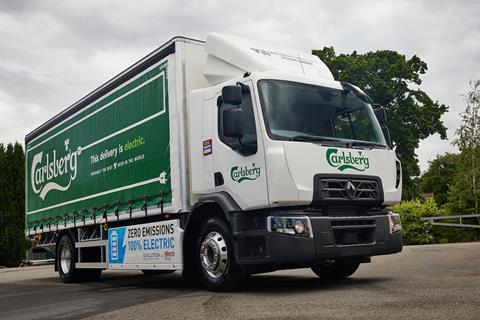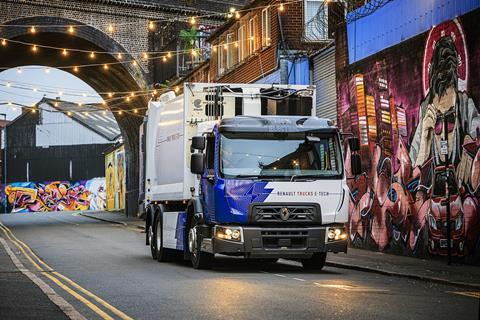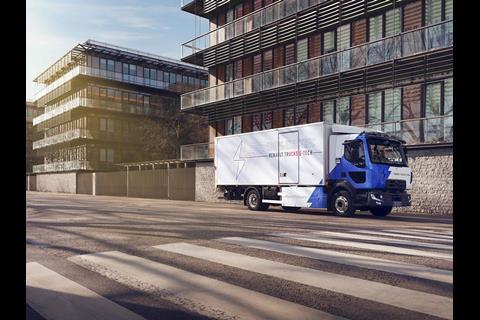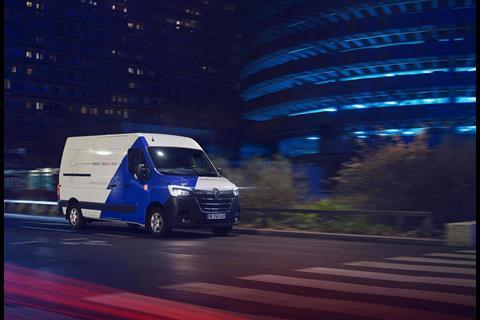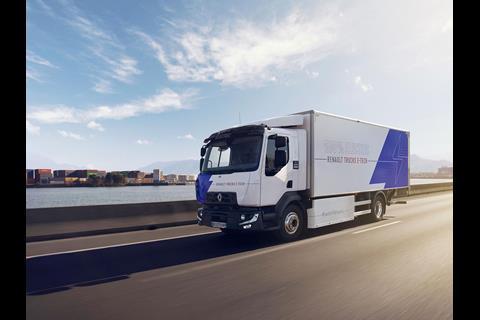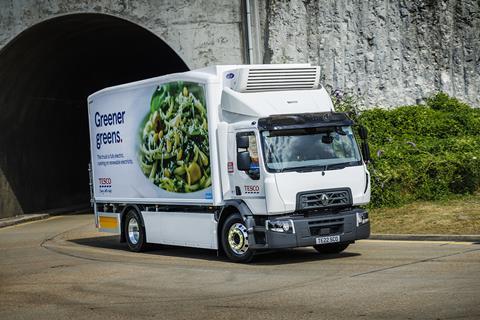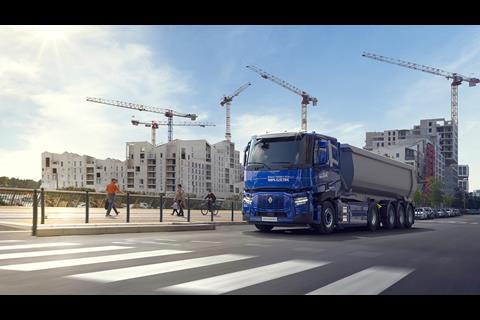It’s the only company to provide an electric mobility offer for all uses, from a 650 kg cargo bike to a 44 tonne electric tractor and construction truck. Freight Carbon Zero takes a closer look at Renault Trucks, the manufacturer that has pioneered electric mobility for over a decade, on a mission to decarbonise freight transport.
On Monday, 17 June 2019, Renault Trucks’ CEO Bruno Blin handed Thierry Philip, Lyon Metropole Vice President, the keys to a 100% electric refuse collection vehicle. Marking a milestone in the decarbonisation of transport, this 26-tonne E-Tech D Wide was the first of the second generation of Renault Trucks electric trucks, made at the manufacturer’s Blainville-Sur-Orne plant in Normandy.
For the first generation of its electric trucks, we need to go back nearly fifteen years, when Renault Trucks started work with commercial operators to prove the operational capacity and commercial viability of a range of hybrid and fully electric technologies across several countries. Here in the UK, Renault Trucks’ first hands on experience with electric vehicles was during the London Olympics in 2012, providing a hybrid electric 26t vehicle which delivered Coca-Cola to sites during the Games – it didn’t miss a beat then, or in a further four years’ operating in the capital.
Since then, progress has been swift. In March 2020, Renault Trucks became the first manufacturer to start serial production of its electric trucks at the Blainville factory, delivering the UK’s first 100% electric production truck, a 26t rigid in the July of that year. Fast forward to today, and half of the electric trucks sold in Europe are produced in the Renault Trucks plant, that’s more than 1,000 16t,18t and 26t battery electric vehicles delivered to date.
There is no doubt that the pace is picking up rapidly, with Renault Trucks electric vehicles already in service across Europe and in the UK with leading customers such as Warburtons, Tesco and Suez. Across all sectors, electric vehicles are becoming the new normal for cleaner, quieter transport and logistics for urban and semi-regional applications. As well as distribution, waste recycling and construction are being decarbonised, with electric skip loaders on the road with Recycling Lives, and the first electric mixer now in operation with Tarmac.
The arrival of Renault Trucks’ all-electric heavy-duty range marks a major step forward in the manufacturer’s commitment to decarbonising road freight transport. The Renault Trucks E-Tech T and C, which are the first to bear the manufacturer’s new logo, will be produced in series at the Renault Trucks factory in Bourg-en-Bresse from 2023. They are already available for pre-order.
Where first they were pioneers, now Renault Trucks are experts, supporting customers on their transition to a decarbonised transport future through an expressly consultative approach. Infrastructure and energy provision are considered alongside vehicle specification. Its engineering staff tailor the vehicle to each operator’s requirements, taking actual routing data to assess the energy consumption of the vehicle in-use, and creating a specification including battery capacity tailored to that application.
A battery configuration tool maps operator data against real-time telematics information to create an energy usage map. This data is used to configure the vehicle and also underwrites the battery promise offered, up to 10 years’ use. The same data determines the long-term energy requirements for each site, and therefore the charging infrastructure and energy supply required.
For operators interested in the most sustainable solutions, these recommendations can include comprehensive proposals to incorporate solar arrays or wind-sourced energy, and/or battery storage systems to offer the most sustainable long term energy supply.
At every Renault Trucks dealer across the UK, customers are supported throughout their entire journey to switch to electric by Renault Trucks’ fully trained Energy Transitions Specialists, at all points of the vehicle’s life, before delivery, in-service and end-of-life.
Electric trucks are already answering the pressing need to improve air quality and reduce noise today, especially in urban environments. They can access more areas and decongest our cities, improving transport efficiency by operating at night almost silently, unlocking a 24 hour delivery system, helping to fill our shelves and empty our bins. Welcome to the new normal.








